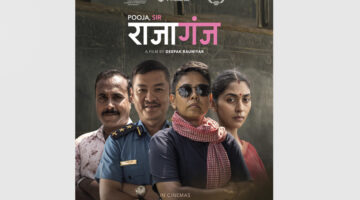Taranath Dahal
The government brought the National Mass Communication Policy on 22 July this year. After the promulgation of the present constitution of Federal Democratic Republic of Nepal, a high-level committee was formed to draft this policy on 3 February for the development of the mass communications in the spirit of the new constitution. The committee was formed comprising nearly a dozen of journalists aligned to the ruling Communist Party of Nepal (Unified Marxist Leninist ) and some few mass communication experts. Therefore, it was received criticisms in the very beginning. The committee with majority of the inexperienced members submitted report to the Minister for Information and Communications, Sherdhan Rai, from the ruling party on 20 July. Minister Rai immediate lauded the draft policy and it did not take few days for the government to approve the policy without any discussion and dialogues in the public. It against created intense debate why the policy was endorsed without holding public discussion.
The draft policy containing 80 pages has the proposed statements from pages 24 to 38 (14 pages). It has nine objectives, 25 basic policies, and 10 subjective area policies. Subjective policies included : broadcasting area, public service broadcasting, private and business broadcast, community broadcast, news agencies, print media, online media, films, advertisements, and television signal and cable distributors. Similarly, the policy also mentions the strategies of its execution and review in every 10 years. With this policy in place, it dismissed the first media policy of 1992 which was produced after 1990’s democratic revolution.
The policy has restored such undemocratic values that have enabled the government’s role in mass communications and further strengthened the government-run media. The constitution brought last year have distributed the rights of regulating media and journalists to the governments in all three tiers-local, provincial and federal. Although the policy has aimed at making clear these rights for their effective implementation, it has concentrated the implementation rights to the central government. It has therefore failed to internalize the constitution’s spirit of the liberal and extensive decentralization. It has come to further empower the central government’s rights.
Saying these, it does not mean that the policy lacks the positive sides as encouraging accountable and responsible mass communication and promoting media pluralism. Other positive approach it has are- establishment of media as an independent and self-reliant industry and making media accountable to uplift the people’s standard. Despite these positive points, it has some contents that are quite contrary to the Media Development Indicator prepared by the UNESCO, contrary to the international values and standards of the freedom of expression. It has rather abundant contents that reflects the thoughts of a single-party rule and is hostile to the values of the democratic State. It obviously harbors worry that the country won’t have satisfactory media development trend. Similarly, when illiberal political leaders reach the executive power, the provision in the policy can be easily misused, which is a serious concern. And if constructive advocacy is not waged to exert pressure on the concerned agencies, it would result in regret.
Although it is laudable and encouraging that constitution has guaranteed full press freedom in the very preamble, the provisos on the rights to FoE and communication under the fundamental rights are already the factors creating fear that FoE would be shrunk at any time. In addition to this, the government becoming the practitioner of the freedom with hostile provisos rather than protecting press freedom indicates difficult days in store. At a time when the political and administrative leaderships are unreceptive to the democratic values, and the misuse of power has been a common culture, the ambiguous constitutional provisions and policy documents will gradually shrink the sphere of freedoms. Similarly, Nepali society is yet to evolve itself as a liberal democracy. The system developed after the traditional control-mindset has not flourished in the pace it was expected. It is finely reflected in the National Mass Communications Policy-2016.
Yes, there are a lot of words and phrases used describing the importance of fair, healthy, independent, respected, accountable and professional mass media, but the drafts of the acts being proposed along with this policy have numerous aspects that tarnish the democratic values. Coordinator of the National Mass Communications Policy-2016, Kashi Raj Dahal had observed that the policy is the result of integration and compromise of various political faith. So, he himself was not fully for this policy, arguing it was the amalgam of diverse views. However, he said it could be reviewed and revised as per the need. It was also learnt that while preparing the draft of this policy, democratic values were compromised time and again. Therefore, taking this policy as it is may not fully promote professional journalism. It is therefore a need to promote the positive aspects of the policy while advocating for the corrections on the faulty contents. This way, Freedom Forum has observed this policy from both angles- some support, some criticism. With this, we have advocated for the revision of the policy. The implementation of the positive points of the policy are always the regular activities of the FF, with its concern over the faulty points.
Source: Message from Executive Chief
Free Expression, Issue 35, June-September 2016


